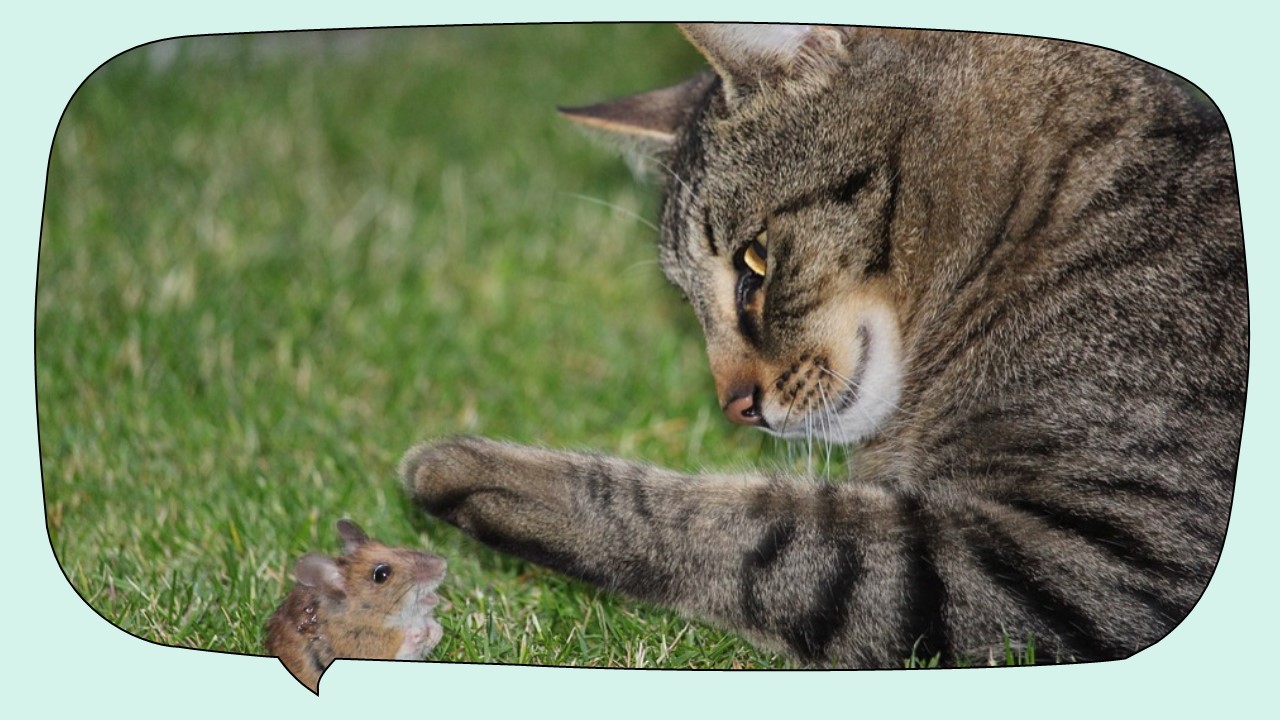Physical Address
304 North Cardinal St.
Dorchester Center, MA 02124
Physical Address
304 North Cardinal St.
Dorchester Center, MA 02124


Yes, cats actually eat mice, rats, birds, and other small mammals’ animals. Domesticated cats may not be as eager to feed themselves on their catch as wild large cats are in the jungle, but they occasionally eat their prey. But most domestic cats don’t eat their preys or even kill them. Cats in most cases they just play with them or deliver their prey to their owners as trophies or gifts rather than killing it.
Domestic cats who live indoors tend to engage in hunting playing with their prey, as they have not learned how to hunt from their mother that usually start teaching their kittens as soon as they are 6 weeks old.
Cats can get sick from eating mice. It’s possible that your cat will become ill if it eats a mouse that has already ingested pesticide. When compared to how much poison a cat would need to consume to have the same effect, a mouse needs relatively little poison to be lethal. But there is still a risk.
In addition to the potential for poisoning, mice may also be hosts to parasites like fleas, mites, or roundworms. Therefore, if your cat is a skilled hunter, I recommend you maintain a monthly parasite prevention regimen.
Cats don’t always attempt to eat the prey they catch. They like working on and refining their hunting instincts. That implies that they will go after mice for you and possibly not even eat them. Cats are therefore excellent at preventing and treating mice infestations.
According to new research, cats and other predators produce a chemical signal that terrifies mice. Researchers in the US have shown that mice exhibit a panic response when they encounter particular proteins present in cat urine and saliva.
Cats often do an excellent job of keeping mice out of the major areas of the house. However, this does not imply that the mice have disappeared permanently, and rodent extermination services will typically be needed.
Despite the stereotype that all cats are skilled mouse hunters, some cats are actually scared of mice, while others simply view them as toys. It largely relies on the cat’s personality.
To begin with, you should never punish your cat for hunting and eating mice because it is simply acting out its natural instincts. But if you live with a skilled hunter cat and it is getting out of control, there are a few techniques you might employ to stop cats from going hunting and eating mice.
One of the best ways to stop your cat from hunting is to play with it frequently. Play helps your cat fulfill their want to hunt by stimulating their minds. Feather teasers are the ideal toys to use for this (or basically any toy which will move). Since indoor cats aren’t given the chance to hunt naturally, they may develop issues in your home, like biting or pouncing on your feet or being destructive. This kind of play is very crucial for indoor cats.
Cats have been shown to quit hunting by wearing break-away collars with bells attached to them. In a recent study, the RSPB discovered that cats with bells on their collars caught 34?wer mammals and 41?wer birds than cats without. Always make sure the bell-equipped collar you are contemplating has a safety release mechanism in case your cat gets tangled up in something.
By giving cats a good and balanced diet, you can lessen the amount of time they spend hunting out of hunger. Alternatively, you might try giving them smaller meals more frequently throughout the day.
The best times for cats to hunt are likely to be around dawn and dusk when small mammals and birds are present, as well as following a period of inclement weather when they will likely come out to feed. Keep your cat inside during these periods if you wish to reduce the frequency of successful hunts.
Most cat will typically hunt and eat mice. You might find it disgusting, but your cat won’t! Whether or not your cat is good at it, hunting is an activity that comes naturally to cats, so it’s crucial that they have access to this opportunity because it can increase their overall pleasure. Making time to play with your indoor cat is vital for managing stress, maintaining a healthy weight, and many other things. Hunting live animals or toys adds enrichment and can relieve tension and anxiety.
You must check these articles next:
Can Cats Eat Hot Dogs? Complete Answer
Can Cats Eat Peanut Butter? Complete Guide
Do Cats And Ferrets Get Along?
Can Cats Drink Almond Milk? Or Any Other Milk